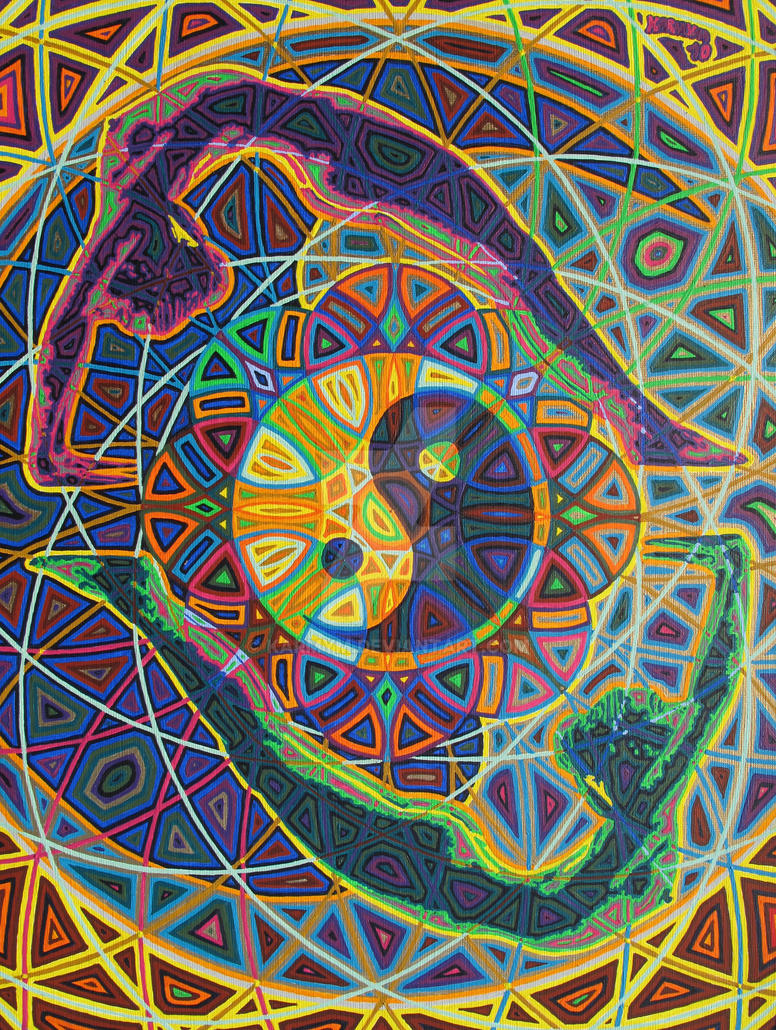The God Question II (It Never Goes Away)
Why are there laws?
Orderly and scientific, giving guidelines,
Making tidiness from chaos.
Logic looking yet for more:
Th’explored and yet-to-be…
Take a category: love.
Too abstract to pinpoint, like
We ‘in-the-image-of…’
Fact or poetry?
Legend, symbol, history?
Amalgam of each and every
Thinker, mystic, visionary
Always been, often hidden:
Metaphor the only language.
Multi-universes. Well,
‘My Father’s house has many mansions.’
Fine-tuned to existences with functions unlike ours?
Or is it that it/they is/are fine-tuned to mortal
powers?
Those hung up on Christian thought
Have never sought Vedanta (or caught up with any
other…)
Deity or cant, for It, It doesn’t care. It’s always
been.
It knows the ropes. It made the ropes,
Not in compliance with the human want,
What we set store by, but
If we believe or not,
It wouldn’t matter to an Absolute.
When you examine boundless, infinite and ultimate…
Supreme and unconditional…
Consider what is absolute;
First creator, law of nature -
Yeah, a question, yea,
That never goes away.
Always two opposing sides:
The smooth, the friction;
Yin and Yang in every action
Newton’s law:
Every action a reaction
Equal and opposing
Foe and friend; equal and opposing end;
Yea, the question never goes away.

yinyang -- Karmym
Hinduism is a complex system of philosophic/theological thought. There are 6 main "astika" schools of thought (from the Sanskrit "asti" ["there is, there exists"]): Nyaya, Vaishsika, Samkhya, Yoga, Mimaṃsa, and Vedanta. In addition there are 4 major "nastika" (not astika) schools in Indian thought (including Buddhism and Jainism), based primarily on the non-acceptance of Vedic literature as authoritative, especially in regards to concepts of soul/self and the existence of a divine being separate from oneself. All of these traditions, and others, which are themselves divided into many sub-divisions, have borrowed themes and definitions from the others. However, Vedanta ("end of the Vedas," i.e., the 200-plus texts known as the "Upanishads") is the dominant astika, linked by a common reliance on the 13 Mukhya Upanishads (the oldest and most widely studied "Upanishads"), the Brahma sutras (the systematic summary of the "Upanishads" composed by Badaranya), and especially the "Bhagavad Gita" ("The Song of God," chapters 23-40 of the 6th book of the "Mahabharata," the epic poem composed by Vyasa). Although the sub-schools differ widely in their application, all Vedanta traditions concentrate on the relationships between Brahman (the ultimate metaphysical reality), the atman (the individual), and prakriti (matter).
ReplyDeleteLet not your hearts be troubled: ye believe in God; believe also in me. In my Father's house are many mansions: i it were not so, I would have told you. I go to prepare a place for you. And if I go and prepare a place for you, I will come again, and receive you unto myself: that where I am, there ye many be also. And whither I go ye know, and the way ye know."
ReplyDelete--Jesus, according to John 14: 1-4